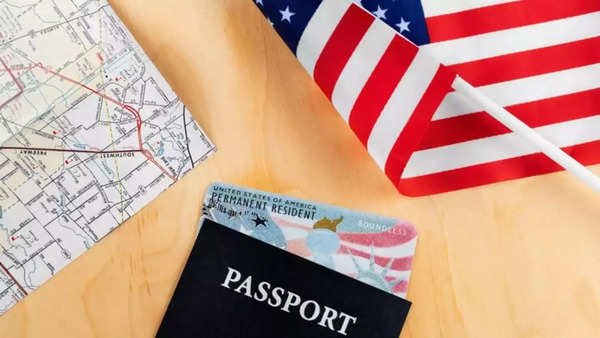Trending
US tightens Green Card rules: What it means for post-marriage travel plans
USCIS has implemented significant changes to the marriage-based green card process, including updated forms, increased fees, and longer processing times. Enhanced scrutiny of marriage authenticity and delays in work and travel permits are expected. Applicants should use updated forms, provide comprehensive documentation, anticipate longer timelines, and seek professional guidance to navigate these changes effectively.
The United States Citizenship and Immigration Services (USCIS) has recently implemented significant changes to the marriage-based green card application process. These adjustments, which include updated forms, increased filing fees, and more stringent scrutiny of applications, aim to enhance the integrity of the immigration system. Prospective applicants must be aware of these changes to ensure a smooth application process.
Updated forms and increased filing fees
See more: Vietnam eyes 10-year golden visa—Is it time to rethink the US route?
Extended processing times

Read more: H-1B Visa emergency guide: What to do if you are facing travel-related crises
Enhanced scrutiny of marriage authenticity
Delays in work and travel permits

Freepik
The processing times for Employment Authorization Documents (EAD) and Advance Parole (AP) have significantly increased, with many applicants now facing waits of eight to fourteen months. While awaiting green card approval, individuals may find themselves unable to work or travel internationally. For those who cannot afford such delays, considering options like consular processing could be beneficial—though this alternative carries its own set of conditions and possible challenges.
Read more: Big travel updates: REAL ID and ETIAS rules for the US and Europe explained
Recommendations for applicants
Use updated forms: Always download and submit the latest versions of required forms from the official USCIS website to avoid processing delays or rejections.
Prepare comprehensive documentation: As USCIS is scrutinizing marriage authenticity more closely, provide thorough evidence of your relationship, including joint financial records, lease agreements, photographs, and affidavits from friends and family.
Anticipate longer timelines: Plan for extended processing times by submitting your application well in advance of any critical dates or travel plans.
Seek professional guidance: Given the complexities of the current immigration landscape, consulting with an immigration attorney can provide valuable insights and assistance in ensuring your application meets all requirements.
Successful marriage-based green card applications can be greatly increased by keeping up with USCIS policy changes and taking proactive measures to meet the new requirements. Navigating this changing process requires diligence, careful planning, and adherence to revised requirements.
End of Article
FOLLOW US ON SOCIAL MEDIA
Visual Stories
Tired of too many ads?go ad free now










